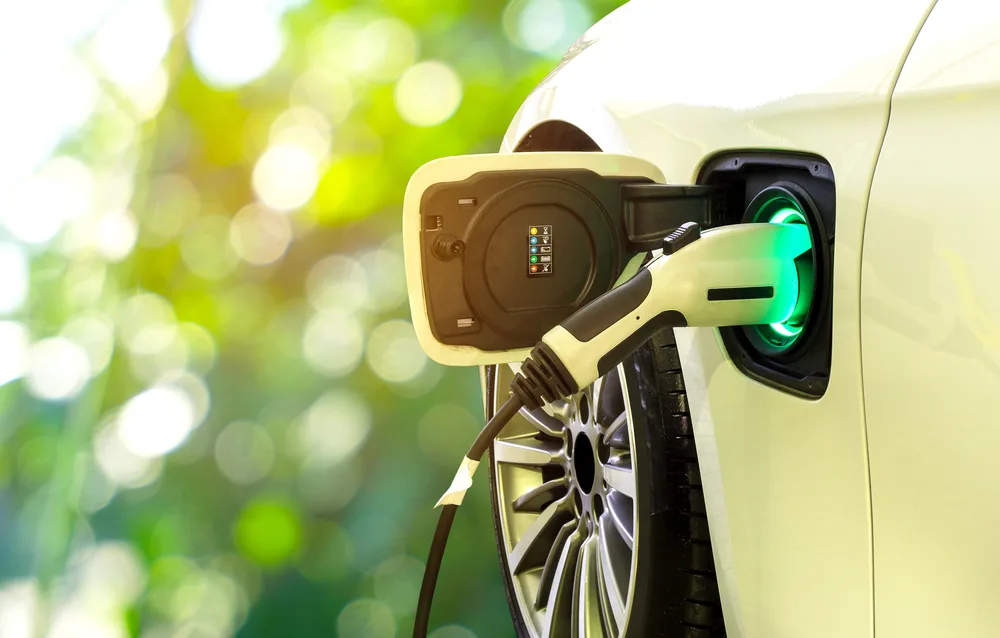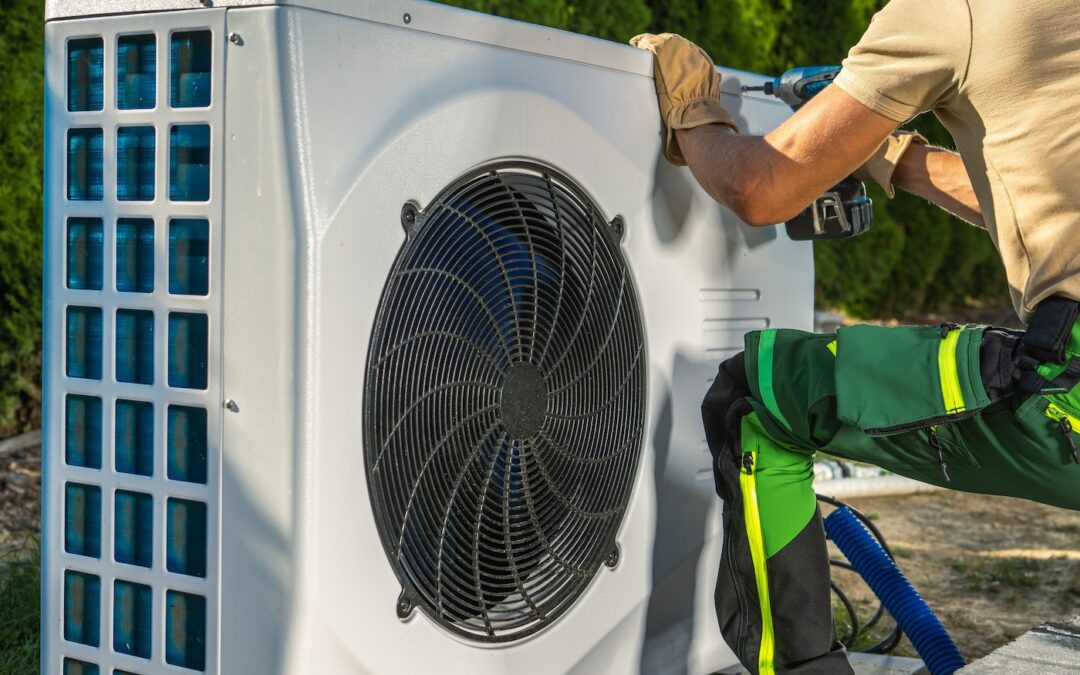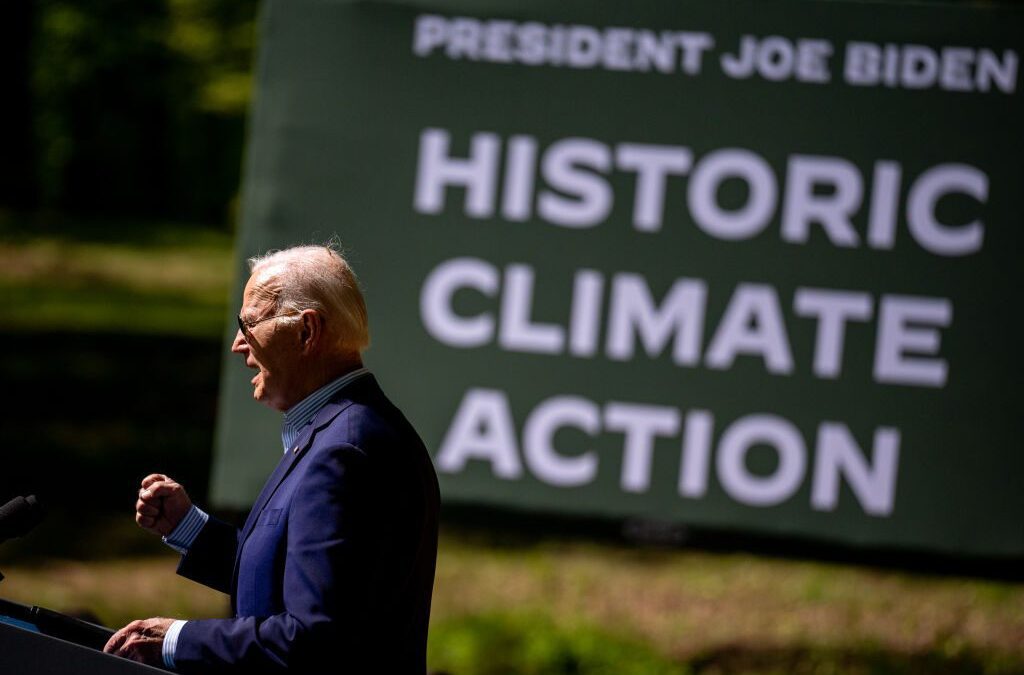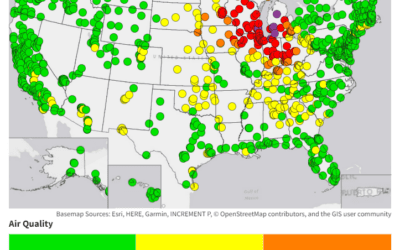
Under President Biden’s Inflation Reduction Act, Wisconsinites can now save money on certain energy-efficient home improvement projects, rooftop solar panels, and electric vehicles. (Photo via Shutterstock)
It’s winter, and Wisconsinites are facing higher energy costs. But did you know there are several tax credits and rebates available that could help save you money on energy costs?
These credits and rebates are part of President Biden’s Inflation Reduction Act (IRA), a 2022 law that established a mix of tax credits for companies and rebates for consumers in order to make the manufacturing and consumption of clean energy technologies and products cheaper.
Now that it’s 2024, homeowners and car buyers can now save money thanks to some of these efforts. Let’s take a look:
Energy Efficient Home Improvement Tax Credit
According to the US Department of Energy, the average American spends $2,000 on energy bills each year, without even factoring in the money that might be “going to waste” from drafts, air leaks, and more.
Offered through the IRA, the Energy Efficient Home Improvement Tax Credit can help offset the cost of certain home improvements projects, such as installing energy-efficient insulation, windows, doors, and electric heat pumps. It may even lower future heating bills, according to experts. This tax credit can also reduce homes’ greenhouse gas emissions.
Qualifying for this tax credit, however, depends on how many and which kind of projects homeowners undertake. Certain upgrades carry distinct caps. Homeowners can get up to $500 a year in tax credits for installing efficient exterior doors, for example. They can also get up to $600 for exterior windows and skylights, as well as $1,200 for insulation and air-sealing materials or systems. It’s worth noting that the combined tax break for these projects is capped at $1,200 a year.
Some projects, such as installing electric or natural gas heat pump water heaters, or electric or natural gas heat pumps, carry a separate, $2,000 annual cap.
In total, taxpayers can get a maximum overall credit of $3,200 per year, if they combine projects worth up to $1,200 and $2,000.
Wisconsinites can check out this fact sheet, published by the IRS, for specific examples of overall tax breaks consumers can expect depending on which projects they plan to carry out.
Homeowners can claim the maximum annual credit each year that they make eligible improvements through 2032. There is no lifetime dollar limit.
In order to qualify for the Energy Efficient Home Improvement Tax Credit, installations must meet certain efficiency standards, which are outlined here by the IRS.
Taxpayers can claim this tax credit when they file their annual tax returns. Since the credit is nonrefundable, households must have a tax liability to benefit, and the IRS won’t issue a refund for any tax credit that exceeds one’s tax liability.
Rooftop Solar
For those that are interested in generating their own clean energy, consider installing rooftop solar panels.
A tax credit is available through the IRA that offers up to 30% of the cost of installing the solar panels, with no cap. The IRA also offers a 30% tax credit for homeowners that need to upgrade their entire electricity panel to install rooftop solar, as well as 30% for installing battery storage.
According to Rewiring America, the average six kilowatt solar installation costs about $19,000, so the average solar tax credit is about $5,700.
There are several ways you can qualify for this tax credit. They include:
- If your solar system was installed after Jan. 1, 2017.
- If your solar system is located at a residence of yours in the US.
- If you own the solar system, meaning you purchased it through financing or with cash “but you are neither leasing the system nor paying a solar company to purchase the electricity generated by the system.”
You might also be eligible if you purchased an interest in an off-site community solar project, as long as the electricity generated is credited against, and does not exceed, your home’s electricity consumption. For more information on this stipulation, click here.
Finally, you might also be eligible if your solar system is new or being used for the first time, as the credit can only be claimed on the “original installation” of the equipment.
The Department of Energy recommends seeking professional tax advice to see if you qualify for this tax credit. If you do, you can then fill out and attach this form to your federal tax return.
Electric Vehicles
If you’re looking to cut your car emissions, you may want to consider buying an electric car.
A new electric vehicle tax credit offers consumers up to $7,500 off the purchase of an electric vehicle, depending on the make and model of the car at point-of-sale. In order to qualify for this tax credit, single filers must make less than $150,000 annually; for joint filers, the household’s income must be less than $300,000 per year.
There are limitations to this tax credit, however. Only electric vehicles assembled in North America qualify, and cars that cost more than $55,000 aren’t eligible. Trucks and vans that cost more than $80,000 are also not eligible.
For a used electric vehicle, you can get up to $4,000 off the purchase price.
For vehicles purchased in 2023 before the point-of-sale rebate went into effect, you need to fill out this form and attach it to your federal tax return to get your tax credit. You will also need to provide your vehicle’s VIN.
Other Options
There are several other tax credits and rebates available through the Inflation Reduction Act that can help you save money.
For example, in rural areas, an electric vehicle charging station can be installed on your property. Using this tax credit, you can get $1,000 off installation costs.
There’s also a rebate program you can take advantage of to get up to $840 off electric/ induction stove and heat pump clothes dryer installation.
For a full list of available credits and rebate programs, click here.

Here’s how to lower your home’s energy bill under the Inflation Reduction Act
It begins with assessing your home’s current energy use, planning improvements, then getting connected to the credits and rebates that can create...

Wisconsinites need to know how they can benefit from Biden’s clean energy efforts. Mandela Barnes is on it.
The one-time head of the governor’s climate change task force now helps connect Wisconsinites to historic levels of funding for energy efficiency...

How to apply for a job in the American Climate Corps
The Biden administration announced its plans to expand its New Deal-style American Climate Corps (ACC) green jobs training program last week. ...

Biden marks Earth Day by announcing $7 billion in solar grants
The Biden administration on Monday announced the recipients of its Solar For All Program, a $7 billion climate program that aims to lower energy...




